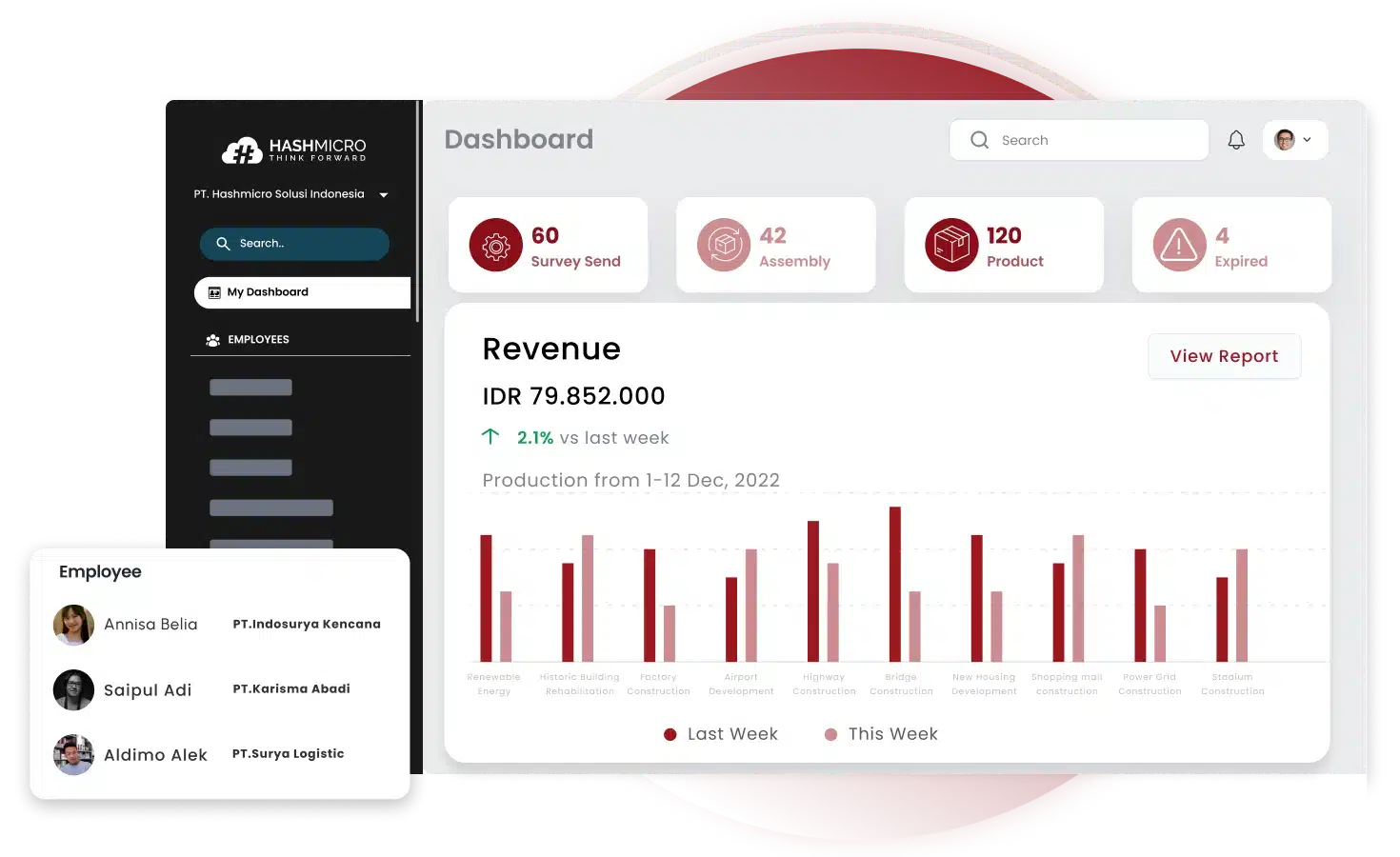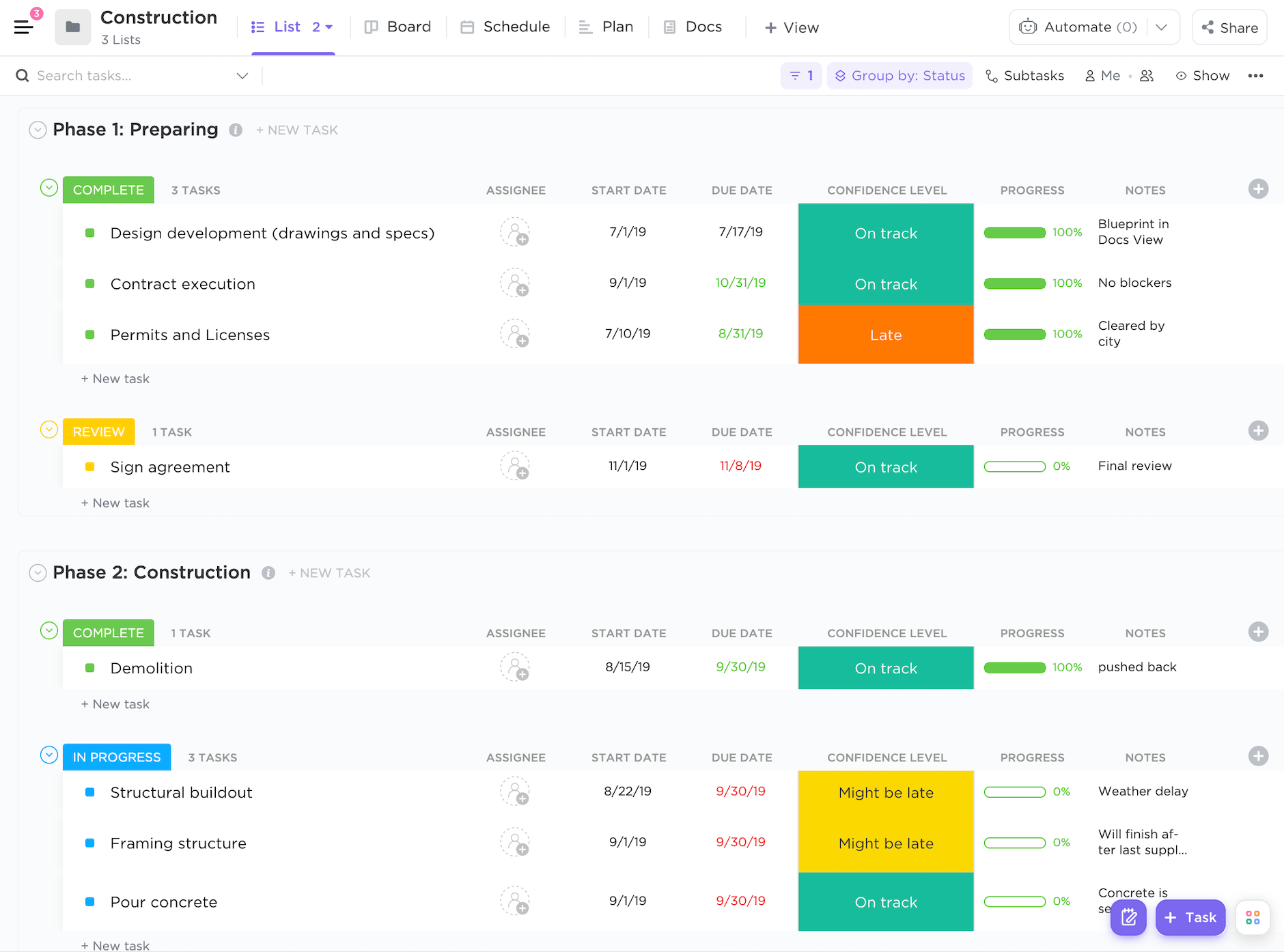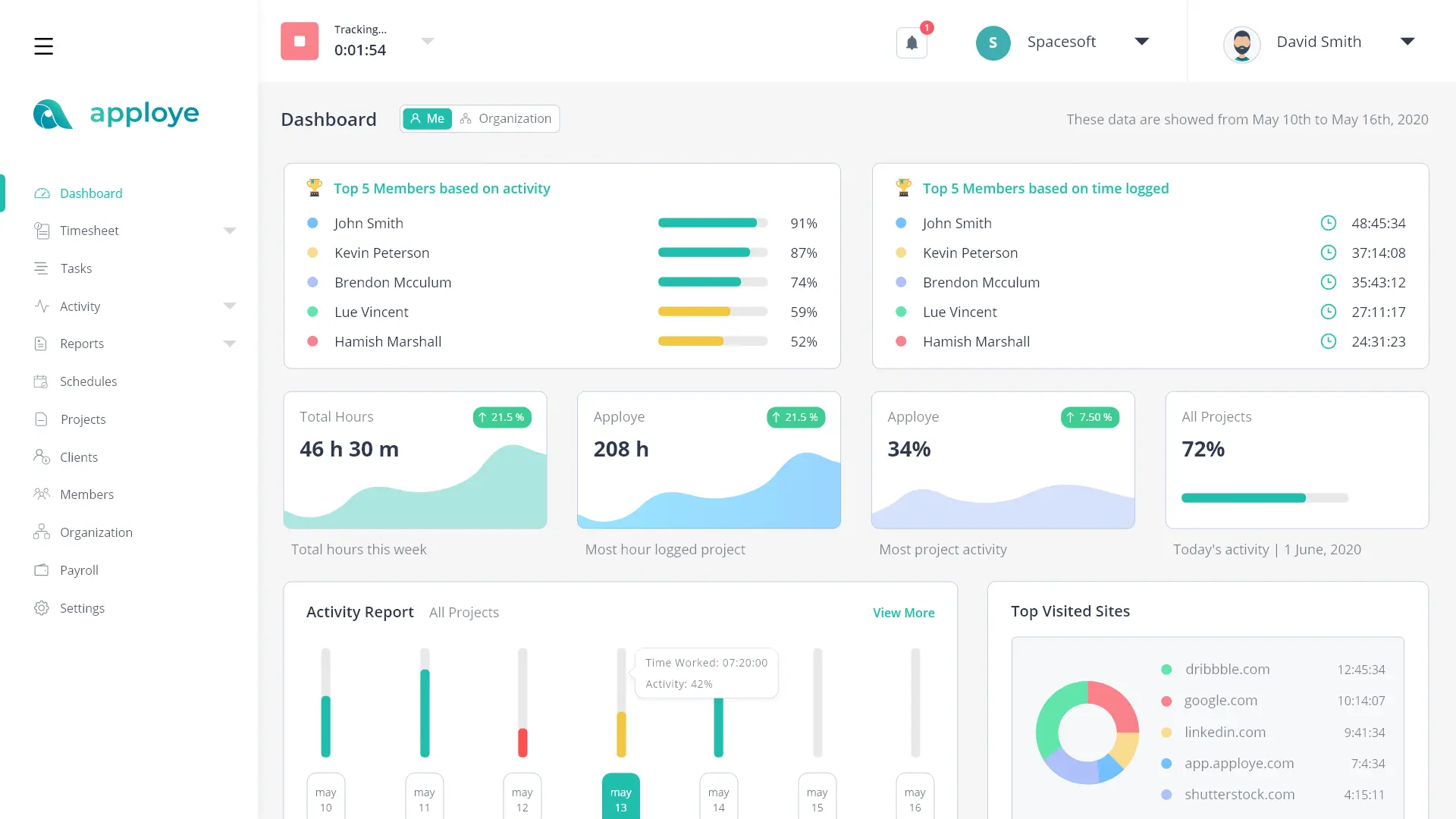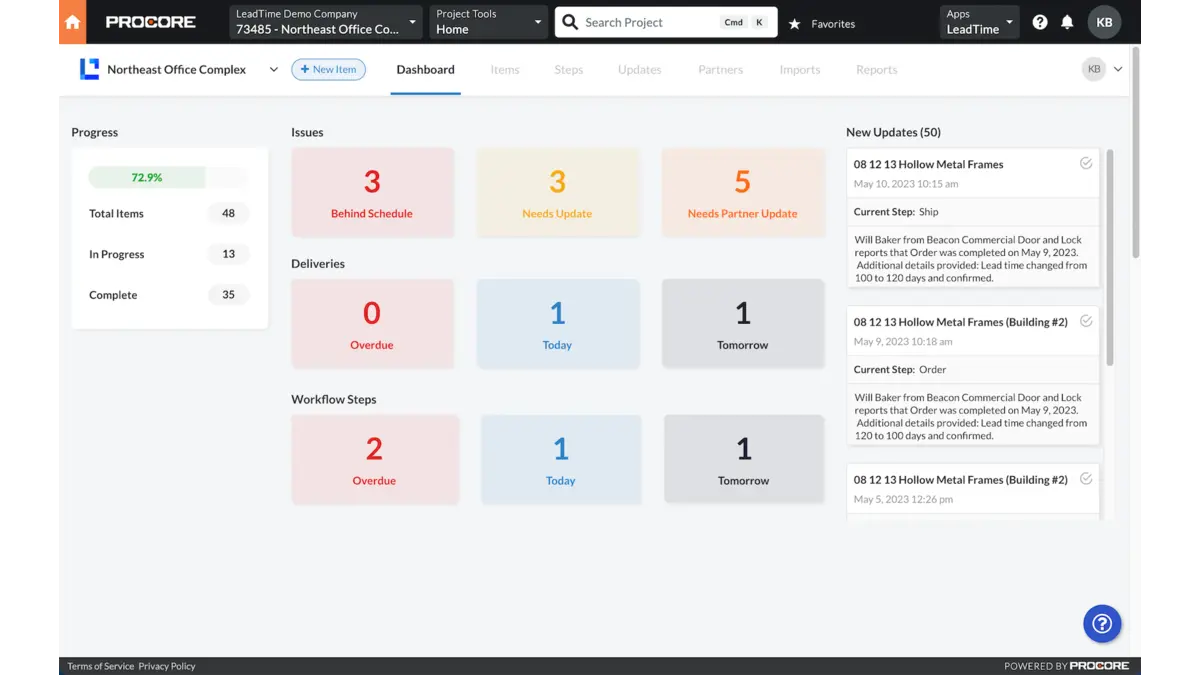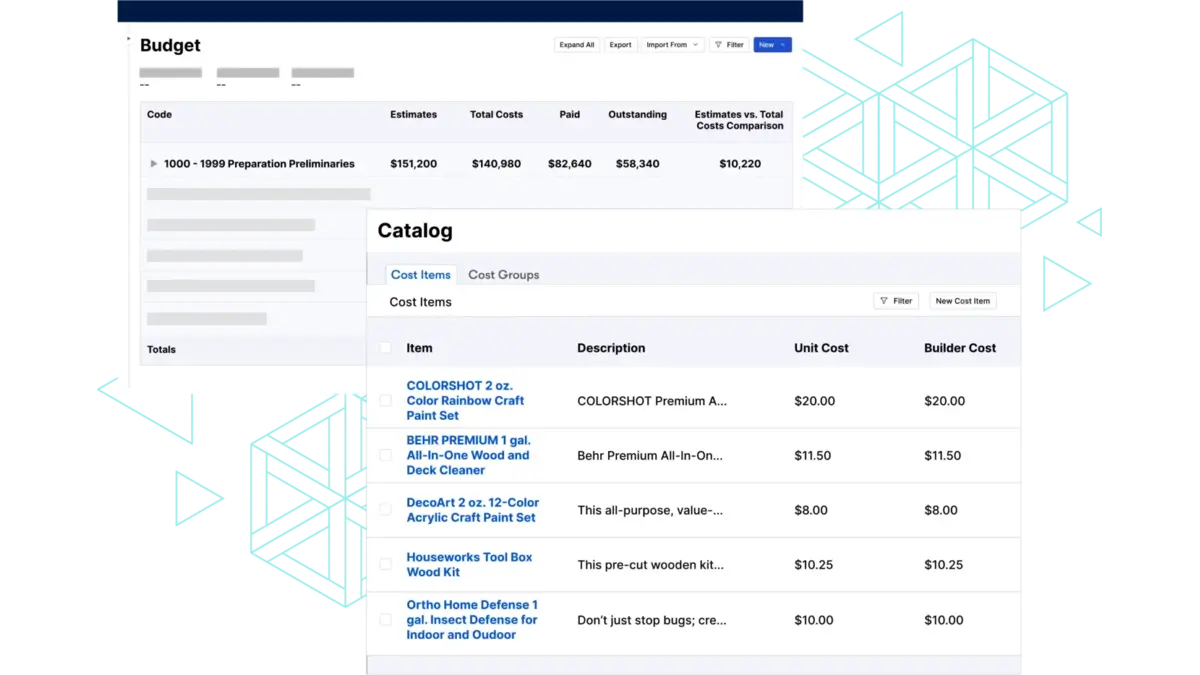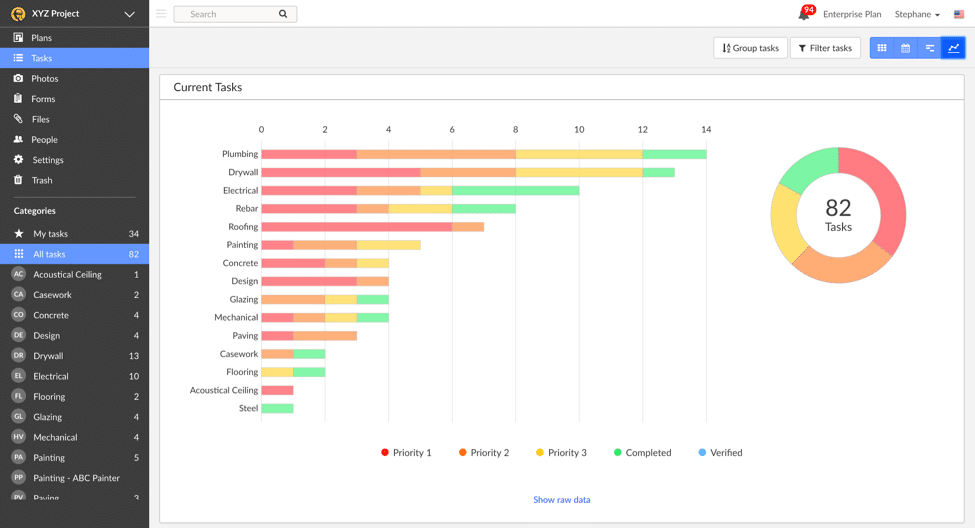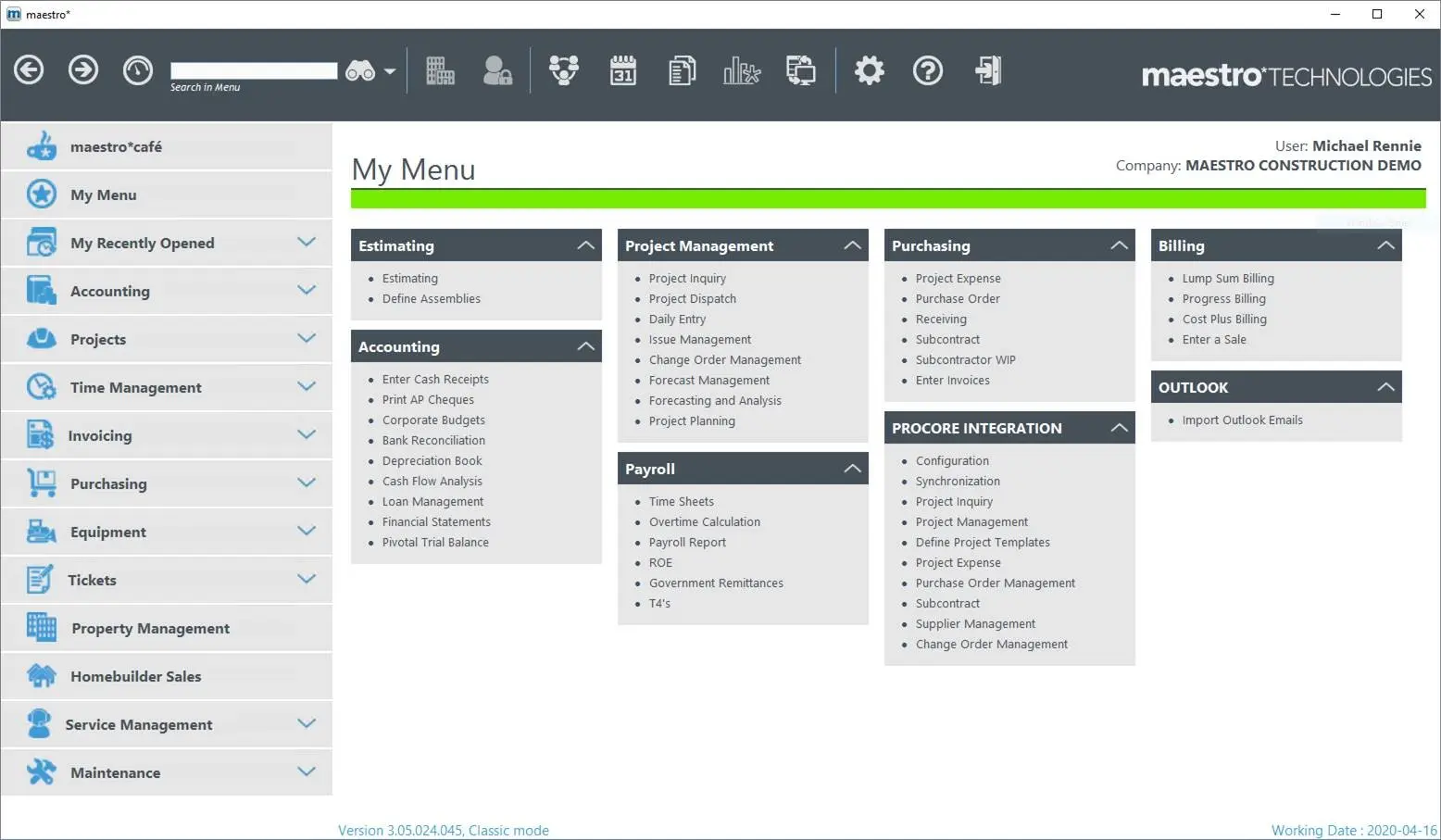With increasing competition, construction companies require integrated software to optimize workflows and enhance profitability. Advanced tools help streamline operations and improve collaboration across all departments.
Construction management software provides features like project scheduling, budgeting, document handling, and real-time analytics. These tools improve efficiency, reduce costs, and enable data-driven decisions, enhancing overall performance.
HashMicro Construction Software is crucial for companies seeking to remain competitive and drive growth. It offers a comprehensive solution for effective project management. Before you read more, you might want to try the free demo from HashMicro to help you understand about the software more!
This article explores best softwares used in construction industry. We’ll also give you a step-by-step on how to choose the best one that fits your business. Check it out!
Key Takeaways
|
Table of Content:
Table of Content
What is Construction Software?
Construction software is a tool that helps construction companies manage their projects efficiently. It offers features such as project planning, budgeting, and scheduling, enabling businesses to streamline their workflows. This improves communication and ensures timely project completion.
With construction software, companies can better allocate resources and track progress in real-time. It also provides insights into project costs, helping teams stay within budget. Overall, it enhances productivity and reduces the risk of errors in construction projects.
How Technology Takes Part in Modern Construction
The construction industry has always been slow to change, but technology is now transforming how it works. Tools like BIM software, drones, and robots now boost efficiency, cut costs, and improve safety on job sites, revolutionizing how construction companies work.
Construction companies are also using virtual and augmented reality tools to visualize designs and simulate construction processes, making it easier to identify potential issues and optimize construction workflows.
With the continued development of technology, we can expect construction companies to embrace even more innovative solutions to improve project delivery and outcomes, such as a construction business system.
Read also: 5 Benefits of Drones for Construction Management
7 Construction Software Recommendations for Singaporean Businesses
Choosing the right construction management software can drastically improve project planning, resource allocation, and communication across teams. Below are six trusted software solutions that can support local businesses in staying competitive and well-organized.
1. HashMicro
HashMicro Construction Software is an end-to-end ERP solution tailored for construction companies in Singapore, designed to handle complex project requirements with high precision and automation. It helps firms manage everything from budgeting and procurement to workforce and asset tracking, streamlining operations across departments.
To ensure you invest in the right system tailored to your business needs, you may consider exploring HashMicro’s Construction Software. Supported by up to 70% funding through the CTC Grant, this solution offers a free demo to help you assess its capabilities before full implementation.
Features:
- Project Budget Management: Plan, monitor, and control project budgets in real time to avoid cost overruns.
- Automated Procurement: Manage purchase requests, approvals, and supplier relationships in one centralized platform.
- Integrated Inventory Tracking: Monitor construction materials and equipment availability across multiple sites.
- Real-Time Project Progress Tracking: Track work completion status and site activities for accurate scheduling.
- HR & Payroll Integration: Automate payroll and attendance linked to construction shifts and labor deployment.
2. ClickUp
ClickUp is a versatile project management platform that has gained popularity in the construction industry for its intuitive interface and flexible customization. It helps Singaporean contractors organize large-scale projects with ease while promoting collaboration among internal and external teams.
Features:
-
Visual project scheduling through Gantt charts and calendars
-
Custom task views to fit construction workflows
-
Real-time team collaboration with file sharing and comments
3. Apploye
Designed to improve workforce productivity, Apploye is ideal for construction companies looking to track time, monitor on-site teams, and gain insights into project efficiency. Its offline capabilities make it especially suitable for fieldwork-heavy industries like construction.
Features:
-
Time tracking with GPS and geofencing features
-
Offline functionality for remote or low-signal job sites
-
Productivity reporting for better project management decisions
4. Procore
Procore is a powerful platform tailored specifically to the construction sector. Its broad range of features enables teams to manage documents, track job site progress, and ensure quality and safety standards are consistently met.
Features:
-
Centralized document and drawing management
-
Quality and safety tools with customizable checklists
-
Integration with financial modules for end-to-end project control
5. Buildertrend
Buildertrend is an all-in-one solution built for residential and commercial construction firms. It’s especially useful for Singaporean businesses seeking to digitize client communication and manage projects more transparently.
Features:
-
Online scheduling and task assignments
-
Client portals for real-time updates and approvals
-
Budget tracking and financial reporting
6. Fieldwire
Fieldwire stands out for its user-friendly mobile interface, making it a favorite among site managers and field teams. It helps coordinate tasks on the ground while maintaining tight control over schedules and inspections.
Features:
-
Blueprint access and markup from mobile devices
-
Task coordination with real-time updates
-
Daily progress reports for tracking timelines and bottlenecks
7. Maestro ERP
Maestro ERP is ideal for growing construction companies in Singapore seeking scalable and integrated business solutions. It combines core construction functions with financial and HR modules in one centralized system.
Features:
-
Integration of payroll, procurement, and project management
-
Custom modules to match unique business workflows
-
Scalable infrastructure for expanding operations
The Benefits of Software Systems for Construction Companies
Software systems play a vital role in helping construction companies meet project demands while maintaining quality and efficiency. By integrating these systems into daily operations, companies can reduce operational bottlenecks and streamline every stage of a project—from planning to execution.
Here are some key benefits of software systems for construction companies:
-
Improved project planning and coordination: Software enables better scheduling, resource allocation, and progress tracking.
-
Increased efficiency: Automation reduces manual tasks, saving time and minimizing human errors.
-
Enhanced communication and collaboration: Teams can work seamlessly across locations with centralized data access.
-
Better risk and compliance management: Systems help monitor safety standards, legal compliance, and reduce exposure to penalties.
-
Reduced errors and rework: Automated workflows and data validation minimize mistakes.
-
Real-time updates and insights: Managers can make informed decisions quickly based on current project data.
-
Cost reduction and improved ROI: Efficient processes lead to lower overhead and better profitability.
-
Higher customer satisfaction: On-time delivery and quality assurance enhance client trust and loyalty.
In Singapore’s competitive construction landscape, adopting reliable software systems is no longer optional but essential. These construction software in Singapore empower companies to achieve better project outcomes while staying on budget and exceeding client expectations.
How to Get the Most Out of Your Construction Companies Software System
Getting the most out of your investment in construction software is key. To maximize ROI, the software must be fully used and integrated into daily workflows. This means providing proper training and support so employees can use it effectively.
Additionally, it’s important to regularly evaluate the software system and identify areas for improvement, such as additional integrations or customizations. By maximizing the ROI of a construction software system, companies can optimize their processes, reduce costs, and improve overall performance.
Also read: Statement of Work – Purpose, Types, and Best Practices
How to Choose the Right Software System for Your Construction Companies
Choosing the right software system can be challenging with so many options available. To decide, focus on your company’s specific needs and goals, such as project management, scheduling, accounting, and document management.
It’s also important to assess the software system’s functionality, ease of use, and scalability to ensure it can grow with the company. Additionally, it’s helpful to read reviews and get feedback from other construction companies that have used the same software system.
By carefully considering these factors, construction companies can choose a software system that meets their needs and helps them achieve their goals.
1. Project & Contract Management
Project management is key to construction success, covering resource planning, risk management, communication, and tracking progress. Advanced construction software helps streamline these tasks, ensuring projects stay on schedule, within budget, and aligned with goals.
All complex and repetitive processes can waste a lot of time, costs, and resources when done manually. Therefore, construction companies need comprehensive construction management with automated solutions that can simplify these processes and client satisfaction can be improved.
Project Management software systems enable construction companies to create stages in each project. For example, oversee every progress, delegate tasks to the right employees and monitor their performance, manage budgets, forecast revenue from each project, maintain contracts, and much more.
Project management software is usually included in the construction business system module. As such, it can be enough to pick the right dedicated tool for managing construction projects.
Some common features of modern project and contract management software systems are:
- Task Management allows the supervisor to distribute assignments to the right person with the specified deadline as well as monitor the task progress.
- Expense and Billing Management allows contractors to manage the expenses incurred for each project, create invoices, and monitor the status of payments.
- Contract Management enables contractors to create, edit, and monitor contract deadlines with clients through a single system.
- Analytical Reporting allows contractors to analyze projects and employee performance, forecast revenue, and figure out profits and losses.
- Timesheet Management helps contractors monitor employees’ working hours, which makes it easier for them to estimate their salaries.
Read More: 10+ Best Construction Management Software in Singapore
2. CRM
- Customer Database Management helps contractors manage leads and client data for ease of tracking
- Sales Pipeline Management allows sales teams to create and monitor sales stages, track sales status, and analyze opportunities
- SalesForce Management helps sales managers distribute leads to the right salesperson and monitor their performance
- Email Marketing makes it easier for the marketing department to create and personalize marketing campaigns for leads and existing clients according to their segmentation
- Sales Reporting allows contractors to gain complete insights into sales profits and losses, analyze clients and leads, figure out sales turnovers, etc.
3. Inventory Management
- Stock Level Management allows inventory managers to set minimum stock levels and activate alerts notifying when material or equipment levels are low (e.g. due to loss or damage)
- Procurement Management allows the person in charge of inventory to automatically reorder certain materials and equipment to suppliers
- Multi-Site Support allows construction companies to monitor their inventory across multiple job sites
- Supplier Management stores all supplier details, making it easier for contractors to compare one bid with another
- Inventory Forecasting helps companies forecast future material and equipment requirements to avoid unnecessary purchases
4. Accounting
Strong accounting management is vital for stable cash flow in construction. Accounting software aids in managing accounts, controlling expenses, processing bills and payments, handling taxes, and generating financial reports, ensuring efficient and organized financial operations.
Also, construction accounting software helps construction companies manage daily accounts, control expenses, process bills, and payments, pay taxes, and generate various types of financial reports. Some of the common features of accounting software systems are:
- Billing Management allows companies to automatically send payment deadline reminders to clients
- Tax Management helps companies identify and manage taxes easily
- Payment Management helps contractors process various payments from clients and monitor payment status
- Invoice Management allows companies to create personalized recurring invoices for different clients
- Financial Reporting allows companies to generate various types of accurate financial reports such as income, cash flows, capital changes, etc. An example of an accountancy app would be Joist, widely considered to be the ultimate tool for contractors. It’s capable of estimating, invoicing, collecting payments, and managing projects on the go. It can even sync with QuickBooks.
5. HRM
Employees are the most important assets of a construction company since they are the ones who help the company continue to grow. Therefore, contractors need to ensure their welfare.
Moreover, HRM software systems can help construction companies meet the needs of their employees. Here are some of the main benefits of HRM for construction companies:
- Manage employee salaries based on their working hours
- Monitor attendance and manage employee leaves
- Process reimbursements for employee expenses incurred for project purposes
- Create surveys and assessments for employees
- Facilitate the recruitment process for future projects
In construction business system software programs, the HRM feature is a mandatory feature that must exist in the program. HRM is useful for automatically distributing salaries to employees.
This makes contractors no longer need to bother or tire themselves in distributing employee salaries. Additionally, construction business system software programs can also analyze and evaluate the performance of each employee, allowing contractors to select which employees perform well.
Construction business system software programs are mandatory software that construction companies must have. This is because the features and functions in these programs function very well. Therefore, construction companies currently use many construction business system software programs as software to support their performance.
6. CEMS (Construction Equipment Management Software)
Efficient management of construction equipment is important for the success of any construction project. Construction Equipment Management Software (CEMS) offers a vast solution for construction industries to monitor, manage, and maintain their equipment inventory.
This software provides real-time insights into equipment usage, availability, and maintenance needs, ensuring that projects are completed on time and within budget.
Key Features of Equipment Management Software
- Equipment Inventory Management: Tracks equipment details, including model, serial number, location, and usage history.
- Maintenance Scheduling: Creates maintenance schedules based on usage data and alerts for upcoming maintenance tasks.
- Usage Tracking: Monitors equipment usage to identify underutilized or overused equipment.
- Maintenance History: Maintains a detailed history of maintenance activities, repairs, and inspections for each piece of equipment.
- Equipment Status Alerts: Provides real-time alerts for equipment issues, such as low fuel levels or maintenance due.
- Reporting and Analytics: Generate reports on equipment performance, utilization, and maintenance history for analysis and decision-making.
7. ERP Construction Software
One of the most important software for the construction industry is the construction ERP software. An ERP system is an essential system that includes all of the above features. Construction ERP software can help construction companies formulate better plans and strategies.
Construction ERP software can also easily track and record sales of construction materials more effectively. The use of ERP applications in the construction sector is one of the right steps to improve your construction industry.
An integrated ERP system simplifies managing construction projects and calculating their financial value, making it an essential tool for the construction industry. It streamlines operations and ensures better financial oversight for every project.
Above all, you need to know what software your company needs most and what budget is available before you implement this software system. However, you may consider implementing an all-in-one software without any hassle.
In short, you can use the Construction Management Software, which consists of the software components mentioned above, to simplify the overall construction business operations. Get your free demo now!
Hashy AI Fact

Need to Know
Construction projects need tight coordination across teams and timelines. Hashy AI connects procurement, finance, and on-site operations in real time—helping you control costs, track progress, and deliver on schedule.
Request a free demo today!
Conclusion
Construction companies can use business systems to improve planning, efficiency, communication, risk management, and ROI. Choosing the system for construction company involves assessing needs, ensuring ease of use and scalability, and reviewing functionality and user feedback.
HashMicro Construction Software simplifies operations with tools for project management, budgeting, scheduling, and collaboration. Its integrated features enhance workflow efficiency, helping your business achieve better results and higher profitability.
Transform your construction business today! Experience the benefits of construction business system software by requesting a free demo. Discover how it can streamline your processes and drive success.
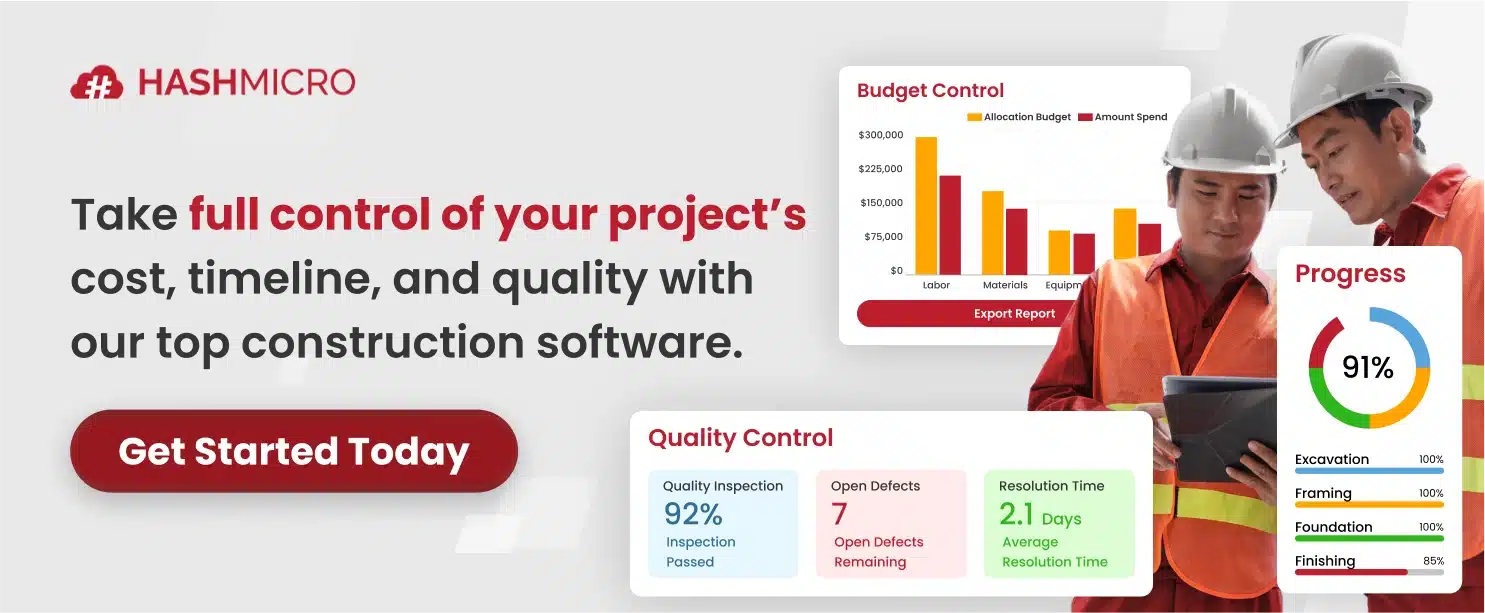
Frequently Asked Questions about Software Systems for Construction Companies
What is the most widely used construction software?
While options like Procore and Autodesk are popular, HashMicro’s construction software stands out for its comprehensive features tailored to streamline operations and improve efficiency in the construction industry.What is construction software?
Construction software, like HashMicro’s, is designed to simplify tasks such as project planning, budgeting, resource management, and payment tracking, making it an essential tool for efficient project management.How to choose construction software?
Choose construction software by assessing your needs, evaluating features, ensuring ease of use and scalability, and reviewing feedback from other users.





